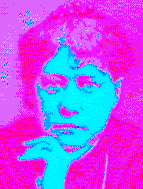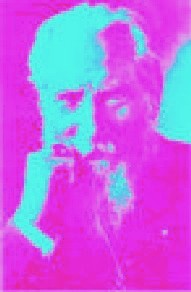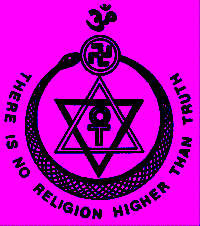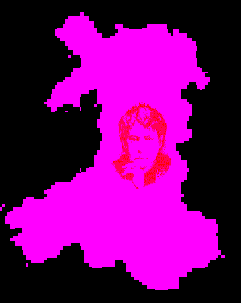Wales! Wales!
Theosophy
Wales
The All
Getting Started in Theosophy
(And its all
Free Stuff )
People outside

Helena Petrovna Blavatsky
1831 – 1891
____________________

What
Theosophy is
From
A
Textbook of Theosophy By C
“ There is a
school of philosophy still in existence of which modern culture has lost sight.”
In these words Mr. A. P. Sinnett began his 1881 book, The Occult World, the
first popular exposition of Theosophy, published thirty years ago.
During the years that have passed since then, many
thousands have learned wisdom in that school, yet to the majority its teachings
are still unknown, and they can give only the vaguest of replies to the query,
“What is Theosophy?”
Two books already exist which answer that question:
Mr. Sinnett’s Esoteric Buddhism and Mrs. Besant’s The Ancient Wisdom. I have no
thought of entering into competition with those standard works; what I desire
is to present a
statement, as clear and simple as I can make it, which
may be regarded as introductory to them.
We often speak of Theosophy as not in itself a
religion, but the truth which lies behind all religions alike. That is so; yet,
from another point of view, we may surely say that it is at once a philosophy,
because it puts plainly before us an explanation of the scheme of evolution of
both the souls and the bodies contained, in our solar system. It is a religion
in so far as, having shown us the course of ordinary evolution, it also puts
before us and advises a method of shortening that course, so that by conscious
effort we may progress more directly towards the goal. It is a science, because
it treats both these subjects as matters not of theological belief but of
direct knowledge obtainable by study and investigation. It asserts that man has
no need to trust to blind faith, because he has within him latent powers which,
when aroused, enable him to see and examine for himself, and it proceeds to
prove its case by showing how those powers may be awakened. It is itself a
result of the awakening of such powers by men, for the teachings which it puts
before us are founded upon direct observations made in the past, and rendered
possible only by such development.
As a philosophy, it explains to us that the solar
system is a carefully - ordered mechanism, a manifestation of a magnificent
life, of which man is but a small part. Nevertheless, it takes up that small
part which immediately concerns us, and treats it exhaustively under three
heads – present, past and future.
It deals with the present by describing what man
really is, as seen by means of developed faculties. It is customary to speak of
man as having a soul.
Theosophy, as the result of direct investigation,
reverses that dictum, and states that man is a soul, and has a body – in fact
several bodies, which are his vehicles and instruments in various worlds. These
worlds are not separate in space; they are simultaneously present with us, here
and now, and can be examined; they are the divisions of the material side of
Nature – different degrees of density in the aggregation of matter, as will
presently be explained in detail.
Man has an existence in several of these, but is
normally conscious only of the lowest, though sometimes in dreams and trances
he has glimpses of some of the others.
What is called death is the laying aside of the
vehicle belonging to this lowest world, but the soul or real man in a higher
world is no more changed or affected by this than the physical man is changed
or affected when he removes his overcoat. All this is a matter, not of
speculation, but of observation and experiment.
Theosophy has much to tell us of the past history of
man – of how in the course of evolution he has come to what he now is. This
also is a matter of observation, because of the fact that there exists an
indelible record of all that has taken place – a sort of memory of Nature – by
examining which the scenes of earlier evolution may be made to pass before the
eyes of the investigator as though they were happening at this moment. By thus
studying the past we learn that man is divine in origin and that he has a long
evolution behind him – a double evolution, that of the life or soul within, and
that of the outer form. We learn, too, that the life of man as a soul is of
what to us seems enormous length, and that what we have been in the habit of
calling his life is in reality only one day of his real existence.
He has already lived through many such days, and has
many more of them yet before him; and if we wish to understand the real life
and its object, we must consider it in relation not only to this one day of it,
which begins with birth and ends with death, but also to the days which have
gone before and those which are yet to come.
Of those that are yet to come there is also much to be
said, and on this subject too a great deal of definite information is
available. Such information is obtainable, first, from men who have already
passed much further along the road of evolution than we, and have consequently
direct experience of it; and, secondly, from inferences drawn from the obvious
direction of the steps which we seem to have been previously taken. The goal of
this particular cycle, is in sight, though still far above us but it would seem
that, even when that has been attained, an infinity of progress still lies
before everyone who is willing to undertake it.
One of the most striking advantages of Theosophy is
that the light which it brings to us at once solves many of our problems,
clears away many difficulties, accounts for the apparent injustices of life,
and in all directions brings order out of seeming chaos. Thus while some of its
teaching is based upon the observation of forces whose direct working is
somewhat beyond the ken of the ordinary man of the world, if the latter will
accept it as a hypothesis he will very soon come to see that it must be a
correct one, because it, and it alone, furnishes a coherent and reasonable
explanation of the drama of life which is being played before him.
The existence of Perfected Men, and the possibility of
coming into touch with Them and being taught
by Them, are prominent among the great new truths which Theosophy brings
to the Western World. Another of them is the stupendous fact that the world is
not drifting blindly into anarchy, but that its progress is under the control
of a perfectly organized Hierarchy, so that final failure even for the tiniest
of its units is of all impossibilities the most impossible. A glimpse of the
working of that Hierarchy inevitably engenders the desire to co-operate with
it, to serve under it, in however humble a capacity, and some time in the
far-distant future to be worthy to join the outer
fringes of its ranks.
This brings us to that aspect of Theosophy which we
have called religious. Those who come to know and to understand these things
are dissatisfied with the slow aeons of evolution; they yearn to become more
immediately useful, and so they demand and obtain knowledge of the shorter but
steeper Path. There is no possibility of escaping the amount of work that has
to be done. It is like carrying a load up a mountain; whether one carries it
straight up a steep path or more gradually by a road of gentle slope, precisely
the same number of foot-pounds must be exerted. Therefore to do the same work
in a small fraction of the time means determined effort. It can be done, however,
for it has been done; and those who have done it agree that it far more than
repays the trouble.
The limitations of the various vehicles are thereby
gradually transcended, and the liberated man becomes an intelligent co-worker
in the mighty plan for the evolution of all beings.
In its capacity as a religion, too, Theosophy gives
its followers a rule of life, based not on alleged commands delivered at some
remote period of the past, but on plain common sense as indicated by observed
facts. The attitude of the student of Theosophy towards the rules which it
prescribes resembles rather that which we adopt to hygienic regulations than
obedience to religious commandments. We may say, if we wish, that this thing or
that is in accordance with the divine Will, for the divine Will is expressed in
what we know as the laws of nature. Because that Will wisely ordereth all
things, to infringe its laws means to disturb the smooth working of the scheme,
to hold back for a moment that fragment or tiny part of evolution, and
consequently to bring discomfort upon ourselves and others. It is for that
reason that the wise man avoids infringing them – not to escape the imaginary
wrath of some offended deity.
But if from a certain point of view we may think of
Theosophy as a religion, we must note two great points of difference between it
and what is ordinarily called religion in the West. First, it neither demands
belief from its followers, nor does it even speak of belief in the sense in
which that word is usually employed. The student of occult science either knows a thing or
suspends his judgment about it; there is no place in his scheme for blind
faith.
Naturally, beginners in the study cannot yet know for
themselves, so they are asked to read the results of the various observations
and to deal with them as probable hypothesis – provisionally to accept and act
upon them, until such time as they can prove for themselves.
Secondly, Theosophy never endeavours to convert any
man from whatever religion he already holds. On the contrary, it explains his
religion to him, and enables him to see in it deeper meanings than he has ever
known before. It teaches him to understand it and live it better than he did,
and in many cases it gives back to him, on a higher and more intelligent level,
the faith in it which he had previously all but lost.
Theosophy has its aspect as a science also; it is in
very truth a science of life, a science of the soul. It applies to everything
the scientific method of oft-repeated, painstaking observation, and then
tabulates the results and makes deductions from them.
In this way it has investigated the various planes of
nature, the conditions of man’s consciousness during life and after what is
commonly called death. It cannot be too often repeated that its statements on
all these matters are not vague guesses or tenets of faith, but are based upon
direct and oft-repeated observation of what happens. Its investigators have
dealt also to a certain extent with subjects more in the range of ordinary
science, as may be seen by those who read the recently issued book on Occult
Chemistry.
Thus we see that Theosophy combines within itself some
of the characteristics of philosophy, religion and science. What, it might be
asked, is its gospel for this weary world? What are the main points which
emerge from its investigations?
What are the great facts which it has to lay before
humanity? They have been well summed up under three main heads.
“There are three truths which are absolute, and which
cannot be lost, but yet may remain silent for lack of speech.
“The soul of man is immortal, and its future is the
future of a thing whose growth and splendour has no limit.
“The principle which gives life dwells in us and
without us, is undying and eternally beneficent, is not heard or seen or smelt,
but is perceived by the man who desires perception
“Each man is his own absolute lawgiver; the dispenser
of glory or gloom to himself; the decreer of his life, his reward, his
punishment.
“These truths, which are as great as is life itself,
are as simple as the simplest mind of man”.
Put shortly, and in the language of the man of the
street, this means that God is good, that man is immortal, and that as we sow
so we must reap. There is a definite scheme of things; it is under intelligent
direction and works under immutable laws. Man has his place in this scheme and
is living under these laws.
If he understands them
and co-operates with them, he will advance rapidly and will be happy; if
he does not understand them – if wittingly or unwittingly, he breaks them, he
will delay his progress and be miserable. These are not theories, but proved
facts. Let him who doubts read on, and he will see.
______________________

The All
Guide to
Getting Started in Theosophy
_______________________
Find
out more about
Theosophy
with these links
Theosophy Cardiff’s Instant Guide
Independent Theosophical Blog
One liners and quick explanations
About aspects of Theosophy
H P Blavatsky is usually the only
Theosophist that most people have ever
heard of. Let’s put that right
The Voice of the Silence Website
An Independent Theosophical Republic
Links to Free Online Theosophy
Study Resources; Courses, Writings,
This is actually an introductory handout for study
groups which can you print off and read at your leisure.
No
Aardvarks were harmed in the
The Spiritual Home of Urban Theosophy
The Earth Base for Evolutionary Theosophy
Try these if you are looking for a
Local Theosophy
Group or Centre
UK Listing of Theosophical Groups
Wales
Theosophy Links Summary
All Wales
Guide to Theosophy Instant Guide to Theosophy
Theosophy
Wales Hornet Theosophy Wales Now
Cardiff
Theosophical Archive Elementary Theosophy
Basic
Theosophy Theosophy in Cardiff Theosophy
in Wales
Hey Look!
Theosophy in Cardiff Streetwise
Theosophy
Grand
Tour Theosophy Aardvark Theosophy Starts Here
Theosophy 206 Biography of William Q Judge
Theosophy Cardiff’s Face Book of Great Theosophists
